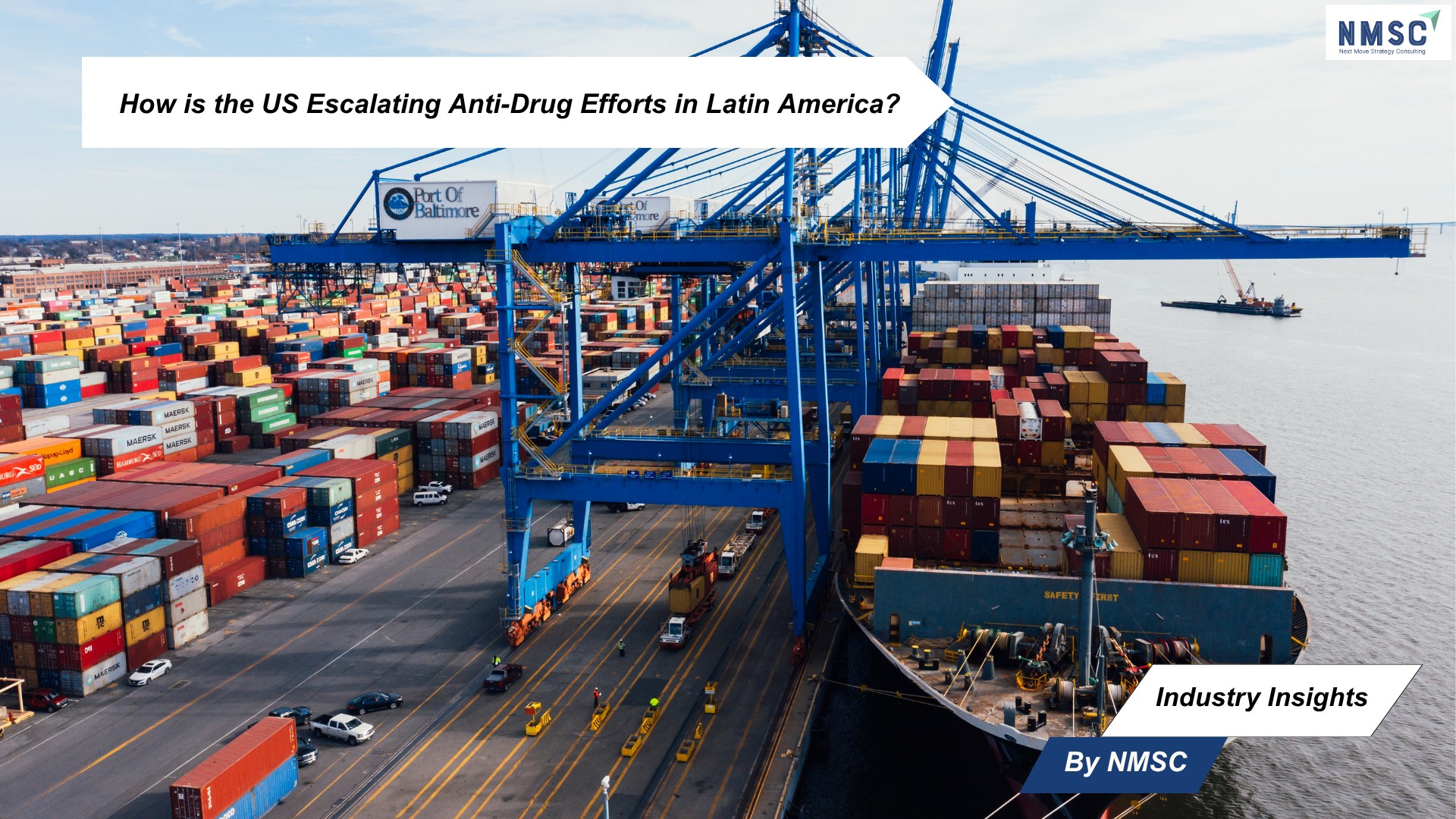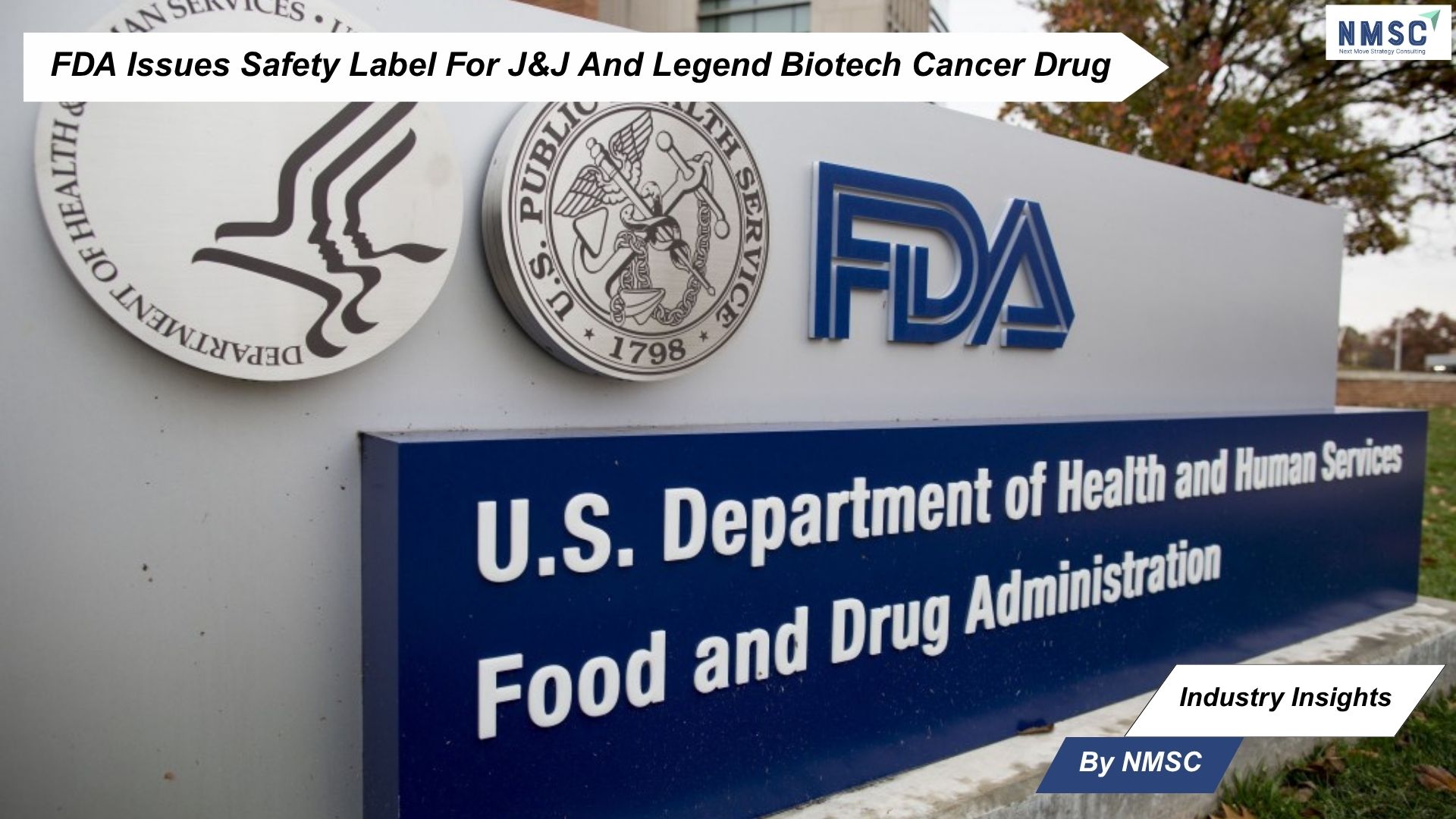How is the US Escalating Anti-Drug Efforts in Latin America?
Published: 2025-10-20

Industry Insights from Next Move Strategy Consulting
In a bold assertion of maritime interdiction efforts, the United States has launched another strike operation on a suspected drug-transporting vessel, this time a boat allegedly linked to Colombia’s ELN guerrilla faction, the National Liberation Army (ELN). Such developments signal a deepening fracture in a key alliance, with implications extending far beyond immediate security concerns to the broader dynamics of global substance flows. This underscores a strategic intensification in Washington’s counter-narcotics campaign, reshaping diplomatic alignments across Latin America.
A Sharpened Focus on High-Seas Enforcement
Longstanding U.S. naval deployments in the Caribbean have intensified since August, resulting in strikes on at least six vessels accused of ferrying narcotics toward American shores, with multiple fatalities reported. The latest incident, executed on Friday in international waters under the oversight of U.S. Southern Command, neutralized a vessel tied to the ELN, claiming three lives among the crew.
U.S. defense officials framed the operation as a necessary escalation in combating organized trafficking networks. Yet, legal scholars raise pointed concerns over the approach, highlighting the absence of interception protocols or judicial proceedings that could align such actions with international norms. This evolving strategy has amplified frictions with regional powers, with regional unease mounting over the scope and intent of these operations, fueling speculation that the flotilla’s mandate may conceal broader geopolitical motives.
Heightened Diplomatic Strain and Policy Clashes
The rift with Colombia's President Gustavo Petro—a former insurgent turned national leader—has reached unprecedented lows. Petro's administration has vocally decried U.S. actions, including a recent fisherman casualty from a September strike, labeling it outright lethal overreach.
As recently as Saturday, President Gustavo Petro accused the United States of murder following the death of a Colombian fisherman in a U.S. strike in September. The exchange has strained relations between Washington and Bogotá, historically close allies. According to U.S. government data cited by NDTV, Colombia received $740 million in aid in 2023, the highest of any South American nation.
On Sunday, Donald Trump lashed out at Petro on Truth Social, accusing him of inaction against cocaine production despite significant U.S. subsidies. Declaring, “As of today, these payments, or any other form of payment, or subsidies, will no longer be made,” Trump vowed to halt all such support, alleging Petro was “strongly encouraging the massive production of drugs.”
Trump’s rhetoric carried a sharply critical tone toward Petro’s policies, warning of consequences if coca cultivation continues unchecked. Since assuming office in 2022, Petro has steered a foundational pivot in narcotics policy, prioritizing socioeconomic drivers over aggressive crop destruction. This shift correlates with a documented 70 percent uptick in coca acreage, per domestic and United Nations assessments, underscoring persistent challenges in curbing supply chains.
Key Developments at a Glance:
-
Naval flotilla active since August, targeting six+ vessels with 27+ fatalities reported.
-
Friday's ELN-affiliated strike in Southern Command jurisdiction, three crew killed.
-
Trump's aid freeze announcement, ending $740M annual support amid coca cultivation rise.
-
Petro's policy emphasis on social factors, yielding 70% coca growth per UN data.
Navigating a Volatile Regional Landscape
These maneuvers reflect a U.S. commitment to proactive disruption of transnational illicit trade, yet they risk alienating partners essential for collaborative enforcement. As verbal salvos escalate—capped by Trump's admonition for Petro to "close up these killing fields" or witness forceful alternatives—the specter of broader instability looms over Latin American corridors.
For the Pharmaceutical Drug Delivery Market, this surge in enforcement and diplomatic fallout carries direct reverberations. Heightened U.S. interdictions may temporarily constrict illicit cocaine inflows, potentially stabilizing precursor chemical demands and easing pressures on legitimate pharmaceutical supply chains for analgesics and controlled substances.
However, the 70 percent coca expansion signals entrenched production resilience, which could inflate diversion risks from legal opioid pipelines into black markets, complicating regulatory compliance and innovation in targeted delivery systems like transdermal patches and implantable devices. Market research indicates that such geopolitical strains often drive a 5-10 percent volatility in global pricing for delivery technologies, underscoring the need for diversified sourcing strategies among pharmaceutical firms to mitigate disruptions in raw material flows.
Industry Response and Forward Trajectory – NMSC Views
Observers note widespread scrutiny from international bodies over the strikes' adherence to maritime law, alongside fears that Venezuela's unease could cascade into wider hemispheric discord. For Colombia, the aid cessation threatens fiscal strains on anti-trafficking programs, potentially accelerating the very cultivation spikes it aims to reverse.
Analysts from Next Move Strategy Consulting project that sustained U.S. pressure may catalyze short-term reductions in transshipment volumes, yet long-term efficacy hinges on renewed dialogue to address root socioeconomic triggers—a domain where Petro's vision remains pivotal.
Charting a Course Through Enforcement Tensions
As U.S.-Latin American relations navigate this turbulent phase, the intersection of military resolve and policy innovation holds potential to recalibrate drug interdiction paradigms. Yet, without balanced multilateral engagement, the path forward risks amplifying divisions that undermine collective progress against enduring narcotics challenges.
This episode reaffirms the intricate ties between security operations and global health markets, where pharmaceutical stakeholders must adapt delivery infrastructures to withstand flux in controlled substance ecosystems.
Prepared by: Next Move Strategy Consulting
About the Author
 Sneha Chakraborty is a passionate SEO Executive and Content Writer with over 4 years of experience in digital marketing and content strategy. She excels in creating optimized, engaging content that enhances online visibility and audience engagement. Skilled in keyword research, analytics, and SEO tools, Sneha blends creativity with data-driven insights to deliver impactful results. Beyond her professional work, she enjoys reading, sketching, and nature photography, drawing inspiration from creativity and storytelling.
Sneha Chakraborty is a passionate SEO Executive and Content Writer with over 4 years of experience in digital marketing and content strategy. She excels in creating optimized, engaging content that enhances online visibility and audience engagement. Skilled in keyword research, analytics, and SEO tools, Sneha blends creativity with data-driven insights to deliver impactful results. Beyond her professional work, she enjoys reading, sketching, and nature photography, drawing inspiration from creativity and storytelling.
About the Reviewer
 Debashree Dey is a versatile Content Writer, PR Specialist, and Assistant Manager in Digital Marketing, known for her ability to craft audience-focused narratives and develop data-driven strategies that enhance brand visibility. As a published manuscript author, she combines creativity
with strategic acumen to help brands strengthen their presence and drive deeper user engagement. Outside of her professional pursuits, Debashree draws inspiration from creative projects and design explorations.
Debashree Dey is a versatile Content Writer, PR Specialist, and Assistant Manager in Digital Marketing, known for her ability to craft audience-focused narratives and develop data-driven strategies that enhance brand visibility. As a published manuscript author, she combines creativity
with strategic acumen to help brands strengthen their presence and drive deeper user engagement. Outside of her professional pursuits, Debashree draws inspiration from creative projects and design explorations.
















Add Comment